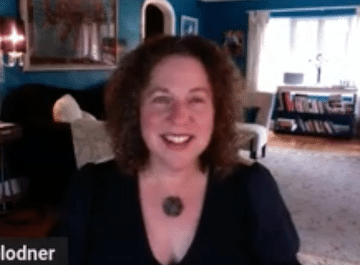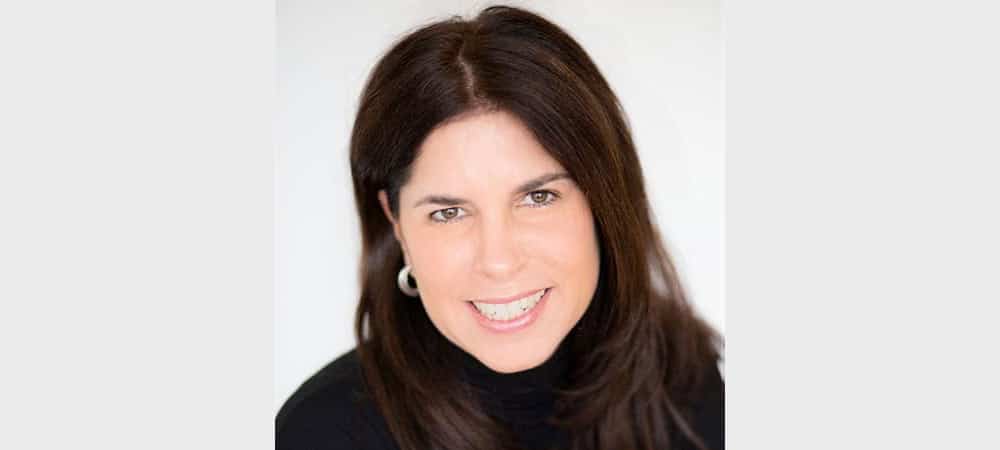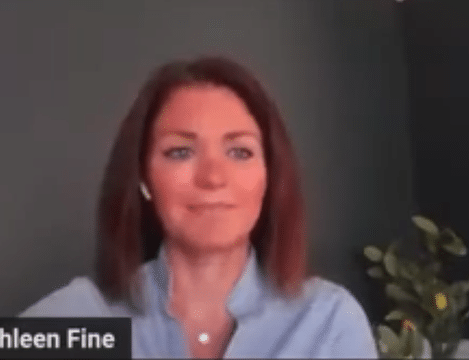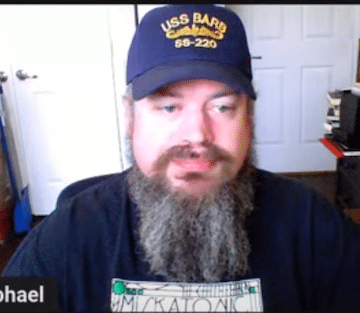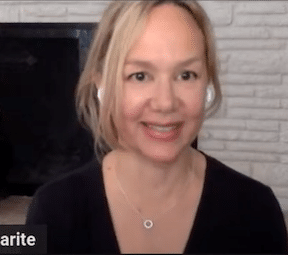It’s rare to find an author who doesn’t dream of having his or her books made into movies. After all, what could be better than seeing your storylines and characters brought to life? On a First Draft Friday episode, we brought in a bestselling author whose cozy mystery series has been optioned and is in development with an A-list actress and top director now.
In this episode, we discuss:
- her path to being optioned
- whether or not to use a film agent
- what elements of her series appealed to Hollywood
Click below to watch our 30-minute discussion and the questions we answered from the live audience. Keep scrolling if you’d prefer to read the transcript.
More info:
Try out Marlowe, our A.I., which can critique your novel: authors.ai/marlowe/
Check out Michele’s books: michelescott.com and akalexander.net
Enjoy the show? Check out our upcoming and past First Draft Friday episodes.
TRANSCRIPT:
Alessandra: Hi everyone. And welcome to First Draft Friday. I am so excited to be joined today by Michele Scott. And we are going to be talking all about bringing your book to film or bringing your book to the screen and what that process is like and sharing Michele’s journey, so this is going to be an exciting half hour. Welcome to this show, Michele.
Michele: Thank you. I’m Michele. I have been writing pretty much my entire life. It’s all I’ve ever wanted to do. And I write in a variety of genres. I write cozies under my name and some women’s fiction. And then I do some pretty dark thriller stuff under my pin name, which is AK Alexander. So I completely understand about dogs barking in the background. I made sure mine’s outside. She wouldn’t just be barking. She’d be jumping in my lap right now, and she’s a big dog.
Alessandra: Can you give us kind of your journey into how and when you really found success through writing and when you started getting interest from studios or from production companies?
Michele: Well, it’s quite an interesting journey because I started traditionally publishing in 2004, which were the Wine Lovers mystery, so Murder Uncork, Murdered by the glass – there’s a whole bunch of them. And it was probably about, gosh, it was maybe 2010 I had received the rights back basically, and this was about the time that KDP, you know, we could upload and we could self-publish, so I started doing some of that. And I had the guys that do Madmen and that did The Walking Dead, they came in and optioned the series. Vincent Newman. He’s a great guy. He optioned first. And I don’t even know – well, I now know how he got the books. I’ll tell you that story. So he optioned those first and he had them for a couple years and we had a lot of interest from Jennifer Love-Hewitt, and then she wound up doing another project and it kind of just fell apart. And so then the guys from The Walking Dead stuff came in and they wanted an option. And then they got a lot of kind of interest. They got a show runner and then there was a contractual issue with that. So that fell apart. So nothing happened. This is like, you know, eight years later, I get an email…
Alessandra: Sorry, let me let me jump in. So can you give us a little bit about this series? What genre is this?
Michele: Cozy mysteries. They’re mystery romance, there’s a lot of comedy to them, they’re just kind of tongue in cheek and they include recipes and wine pairings, so it’s that kind of that old school culinary mystery type of thing. They were a lot of fun. And I was really fortunate with the editors that I had back then, because cozies were really – the demographic didn’t want anything, you know, gratuitous on the page. There were a lot of rules around it and I broke some of those rules and I just kept trying to break them. And the editor never like pushed back and I’m like, oh, I’m just going to keep doing it, so I did. But what happened, there was a span of like six, seven years where they were just sitting there and I was writing other stuff and I was going through some personal things. And so my writing kind of fell to the wayside and I stepped in and was helping in my family business, which you and I talked about before we got on the call.
And then I received a call or an email from Vincent, the original guy who optioned. And he said in this email, “Hey, I was going through my backlist. I hope this is still your email. I’m wondering if you still, you know, own these properties.” And I immediately wrote him back and I said, yeah. So fast forward to now, it’s another three years later, and now we have an A-list actress, an award-winning screenwriter, a top director coming in to produce the movie version of the first book. And I’m waiting to see the adaptation. I’d love to say who, but we’re waiting for all the contracts and all of that to click in.
Alessandra: Well, what do you think it was about this series? Because we have a lot of authors and, you know, there’s obviously a ton of cozy mystery series out there. So I know you said you broke some rules, but do you think there was a specific element that made this more cinematic versus, you know, another cozy mystery that’s sitting on the shelf?
Michele: Yeah, I kind of like – like the Wine Mysteries are for me akin to say Sex in the City in the vineyard with some murder. It’s a little bit sexier, she’s a younger character, so she appeals to a vast audience, I think, a readership. And there’s just like, like I said, there’s a lot of humor to it and there’s just something. And what’s interesting about when I wrote this series, this one specifically, I would see it always playing out in my head as a movie or on TV. Like, I just always knew this was going to be perfect for movie or television, it was, I just knew. I don’t know how, but I did.
Alessandra: And some authors I think have a more cinematic way of telling a story. I know there are a lot of times I’ll read a review and it says I could just see this happening in my mind. So I do think that the way that we tell stories oftentimes can increase their viability or their interest. But did you have a film agent or were you just approached out of, out of the blue on these items?
Michele: So this is kind of a fun story too. I was just approached and I didn’t know like who Vincent was or anything. And he reached out to me and then I went and met with him in Beverly Hills. And I never actually discovered at that time how he got ahold of the books. I can’t believe, I didn’t really ask. I mean, I just thought, oh, he found them and he read them. So when I got these initial contracts last year, it said that a percentage was going to this other gentleman, his name’s Brad Lafaf. And I go, who is this guy? So I called Vincent up. I’m like, I’m sorry, I don’t know this guy. I mean, who is he? He’s not my agent. And he goes, oh no, you know him, he’s a friend of mine. I’m like, he’s a friend of yours. And he’s like, yeah, you definitely know him. It’s how I got the books. It’s like a connection in San Diego, which is where I’m from. I’m like, OK, well, do you mind putting us in touch because I really don’t know him.
So he does, and I call this Brad and he goes, “Oh no, you don’t know me, actually. We have mutual friends and these friends of mine, we all went to a writer’s conference one time together. They weren’t writers. They just wanted to go check it out and go to the talks. And they loved the books and they said, ‘Oh, well we have this friend and we’re going to give it to him. He produces stuff.'” Well, Brad doesn’t do this type of story, so he passed them on to Vincent. But what Brad said to me, he is like, “I don’t want a percentage of your deal, but you have all of this backlist and you do thrillers, that’s what I want.” And so, I’m working on some other stuff with him and some production stuff on that side, but it’s just a kind of an interesting story. I think everybody’s journey is different, but I have not had an agent on this. I do have an entertainment attorney on it, though.
Alessandra: That’s interesting. I do want to talk about an entertainment attorney because I’d like to talk about that before we – and just for those listening, I also went down a movie path and I had a film agent and that was really kind of the only reason how my book got in front of production companies and in front of producers and in front of studios. So I think the typical path seems to be either you have a film agent and they’re pitching and they’re selling your book or you generate enough sales or enough interest to where someone, you know, everyone starts sniffing about, or the right person reads your book or hears about you and they put you in touch, and then, you know, through the grapevine, someone suddenly shows up in your inbox. So, as best I can tell, those are kind of the three ways that something ends up getting put together. Would you agree?
Michele: I agree. And I would give a little advice on that because mine came about in that ladder, right? It just was a random kind of situation, but I was ready for it. And what I mean by that is be ready because you just don’t know. So what I was already prepared for is I had a list of Bible of all properties that could be optioned. So I had a paragraph on each thing. It was all like – so when they started asking me for stuff, it was done. Like the arc work was ready in there, the links were ready, everything was ready. I always was like, I’m going to be prepared because this day is going to come. You know, I just had that kind of like faith. And I think then that combined with a little bit of luck is what was the tipping point for me.
Alessandra: And that’s one of the first things I’ve been asked for whenever anyone is interested or whenever, you know, let’s say I have a producer and we’ve signed an option or a shopping agreement. One of the first things they say is, can I have like a one page description that basically says everything that this book is about so someone doesn’t have to spend four hours reading the book to find out what the plot twist is. I’ve never been prepared, so I love that you said that because that is something that, especially if that’s a goal and that’s something that you want to walk down is already having kind of a kit together for your book.
Michele: Yeah, yeah, I know. It’s been helpful for sure because I didn’t have to scramble and work for hours trying to put everything together, you know? So, I’d done it beforehand kind of like outlining.
Alessandra: Now, an entertainment attorney, so how do you work together? Who is on your team, I guess, if that makes sense when it comes to your -?
Michele: So I do have a literary agent, but he doesn’t handle any of this stuff. Basically, the team is the entertainment attorney and then the producer and then everybody makes kind of their own separate deal, but we all have to be cohesive in that. We all agree on the deal. So he takes a percentage of whatever we agree upon from me, right? Not from anybody else, they all have their own reps.
Alessandra: Sorry. Who is he, the attorney or the producer?
Michele: The attorney. And the producer will make his own deal. But again, it’s all collective at the same time. It can’t be like one person’s going to get stratospherically unless, I mean, you know, your actress is probably going to get quite a bit more than anybody else, but that’s just the way it is, you know? I kind of figure for me as the writer, unfortunately, and I’m sure you can relate is that our sales, our money’s going to come in the back end on book sale royalties. We’re going to get something out of the movie TV kind of thing, but the real benefit’s going to come with your book sale growth.
Alessandra: I agree a hundred percent. That was the very first thing my film agent told me because, you know, as soon as you start talking about studios and everything, at least for me, I’m, you know, picking out the Lamborghini and she said I want to go ahead and give you the expectation that there’s not a lot of money in it for the author of the book. And she goes, where you’re going to make your money is the print deal that you get as a result or the front of the bookstore placements when the movie comes out or the exposure that you have for the book and the book sales that will result. And then you might get it on the second. You’ll be in a much better bargaining position for the second book or the second deal or that sort of thing. But with that first deal, especially, unless you’re El James, and you have sales that are just staggering, there’s not a lot of money there for the author.
Michele: Yep. Yeah, no, I think that’s pretty much the rule. I’ve been taking some screenwriting classes now and been testing out my own script writing and I actually really like it. It’s very different, but I really like it.
Alessandra: I think it’s a great mental exercise too. And it causes you to look at your story in a different way and your writing. I took a few classes on screenwriting and I think it strengthened my fiction writing as a result, because with scripts, you only have so much room, right? I mean, every minute costs money, you know, exorbitant amounts of money. So every scene has to matter and every line of dialogue and every, every bit of it, so it causes you write a much tighter story I think.
Michele: That’s been my experience because you really do. You have to look at each page and each, like you said, like paragraph of dialogue or whatever it is that you’re setting and it has to be impactful. You have no time to waste. So I think it helps you become a more cohesive writer and getting to those specifics quicker and setting that scene, and so it moves quickly. The type of writing, like thriller writing, mystery writing, you, you want those page turns. It’s not savoring literary fiction here, so –
Alessandra: Yeah. And it’s also interesting. Was there discussion with yours about whether to do film or TV?
Michele: There was, and I always envisioned this series as a television series because there are so many books in the series. However, the actress and the screenwriter, movies are their thing and they’re big enough to call the shots and I’m not going to interfere with that because I figure something else. And something else has panned out interestingly enough was the producer came back to me and I do another series with horses in it, and it’s a mystery series. And right now I think is prime time because you have Yellowstone and you have some, you know, 1883 and some spinoffs coming from Taylor Sheridan. So he said to me, well, you’ve got some horse-related novels.” And I said, “Yeah, and they’re all mystery and I’ve got kind of that same tone.” And he goes, “That’s what I want to do for TV.” So we’re working on packaging that now.
Alessandra: That’s really exciting. I think there are so many difficult decisions to make when you are the author, because for a period of time, you are completely in control in terms of deciding what opportunities to pursue and what to say no to. And that can be difficult. Because for me, I know I’ve had a book where I really believed in this book and I really love this book and I really wanted to see it on film. But then it’s the question of, we have an offer and we can make, you know, maybe an indie movie that won’t be seen as much. And do you say no to that opportunity and hold out for, you know, a big budget movie. So have you had any difficult decisions to make, and I know what you just said was interesting that you saw it for TV, but you have to trust the people that you’re working with and take it where it can.
Michele: I did have to make a decision in that area, where was I willing to push it and say, Hey, this is really is such a great fit for TV. And I sat with it for a bit and I just trusted my gut. Like, you know, they do know what they’re doing. This is their expertise. I’m a big believer that what I do is I write books, they make movies, so I’m going to trust that. They know what looks good, you know, what people want on the screen. I feel like because I did trust it and I have really listened to the producers and taken in their advice, that it is rolling into other projects for me. I’m OK with that, but I know what you’re saying. And I think it just really comes down to honestly, Alessandra is like really trusting your gut. Like, can this be something bigger and how much do I want to push or am I OK with this? And that’s just what it comes down to.
Alessandra: I recently was in a discussion with a producer at Showtime, and her first question was, would you be interested in writing the screenplay or the script? And this was for a TV show discussion. And I said, well I’d be open to doing anything, but I feel like a show runner or you know, that would give it a better shot at success than me. It’s not an area I’ve ever written in before. And typically I’ve been told in the past, that we want to attach the best in each field and that’s going to give it the best chance of success. But it was interesting. She said, “Well, with the writer’s strike where we’re really struggling is writers. So if you’re interested and you would be open to that, that would be an easier way for me to at least push this down the line with them. Even if they decide not to use you, just knowing that you’d be open to it would help me progress this further.” And so that was really interesting for me to hear because I’ve always thought that I would hinder a project more than help it. But I think if you’re an author and you’re listening to this and you’re wondering what you can do to set yourself up for success; I don’t think it would hurt to write a screenplay of your book or to write a pilot episode, even if nothing ever happens with it just so you have it and just so you can go through that process and you never know.
Michele: Yeah, I totally agree with what you’re saying, I do. I’ve heard similar things to that, you know, the advice you were given. So I think, like you said, if nothing even comes of it, it’s such a great exercise and really you are the person who knows your story and characters better than anybody else. So somebody can come in and adapt and it’s what they do. And you know, it’s great when you get, when a great writer is attached to your work, that’s really, really great and it’s flattering too. But you know your story best, and so if you have the opportunity to take a crack at it, I say do it. I mean, I’m doing that now with a couple of my books, I’m doing some adaptations and then I’m writing some original stuff, just to see and stretch myself as a writer a bit. Because that’s a great thing about what we do, right? Like, you never stop growing as a writer. Like, there’s always something you can be learning. I mean, I’m always… in fact I’m going to be taking your class. I signed up for your class next week.
Alessandra: Thank you.
Michele: I feel like you never – you know, I take master classes from James Patterson, I’ve taken masterclass from Shonda Rhimes. Even if you think you know everything, you don’t. Like, there’s always something another writer can give you, and that’s one of the things that I really love about what we do.
Alessandra: It also, depending on the book causes you to look at your book in a different way, because I had a book that was heavy within our dialogue. It’s the book you’re reading right now, the Girl in 6E; there’s no one else for her to talk to, so a lot of what she’s doing is she’s just thinking about things. And that was a struggle when we went, and it’s one of the reasons why, if you’re sitting there going, oh, why is this book chosen versus this book? You know, why am I seeing these books? Some books are much easier to transition to film because you don’t have an issue like I had, which is how are we going to – because we don’t really want to do a voiceover. How are we going to communicate all of this that is happening in all of this inner turmoil and show that on the screen? Where it’s so much easier, we can cheat, you know, when we’re writers because there are so many different tools that are at our disposal.
Michele: Yeah. Yeah. It’s a great book by the way.
Alessandra: Thank you. So Michele Scott has your cozy mysteries and then let’s talk a little bit about AK Alexander. So AK Alexander writes what?
Michele: My alter ego, she writes dark thrillers, like serial killer type of stuff. And it came about… I went down that route because that was what I wanted to write originally. And then I was sending them out and this was back in the day before you couldn’t even do online queries. We didn’t have them. And I’m aging myself, so I had written quite a few. And then I wrote Murder Uncorked, and I didn’t even know what a cozy was. I was just like in Napa Valley and I was like, “Oh, wouldn’t it be fun to do like a what if, like a little mystery set here and have some comedy?” And then that’s what sold and that’s what took off. And then I sort of got in this pigeonhole that I write cozy. But I always wanted to do something with the thriller.
So when we were able to upload to KU and self-publish where there wasn’t the stigma to it, I did that and I put a pen name to it, which stands for my kids, Anthony, Kaitlin and Alexander. And nothing really happened with these books for like a year. And then one day I’m literally, you know, you can see your sales in real time. And I open up my computer and I’m looking at the reports and it’s in the UK, I’m selling like tons, like hundreds, and I’m adding it up in my head because I did it at 99 cents and I’m thinking, I’m going to make more than I ever made as an author.” And I’ve been doing this for years in one month, like it was the most exciting moment. And I remember calling my dad he’s no longer with us, and he’s like, “I told you, I told you, you just had to keep faith.”
It was about a year and a half later, that particular book actually went to number one in the UK Kindle store. And that was summer of 2011. And then it went to number four in 2012 in the US, and it was right behind The Hunger Games. I couldn’t break it. And that was before too, that indie authors couldn’t be listed as New York Times bestselling authors, so it was an interesting time. But then Thomas and Mercer, the division of Amazon, came in and they bought two books and then they bought another one that hadn’t been written and then their young adult team came in and they bought three books from me. So again, it was just – who knows it’s not going sell?
Alessandra: Yeah. So how many books did, did you have as AK when that hit, when that spike happened?
Michele: Oh gosh, I took all these backlist books, so I had – I think I had uploaded like eight books.
Alessandra: OK. AK books, AK Alexander books.
Michele: No, because there were some I did under Michele Scott, so I think there were six AK Alexander books. I think there was six, yeah.
Alessandra: Then what did you ever find out? What caused that spike?
Michele: The only thing I could find was a blog in the UK, because this is when blogs were huge. Somebody had – a reviewer had a blog, loved the book and then it just, you know, so that was the way it went viral.
Alessandra: And then you kept writing books in that series, is that correct?
Michele: Yeah.
Alessandra: And you sold over a million copies in that series, is that right?
Michele: That series, yeah. It’s done really well. And in fact, that’s something we’re working on, although I’d have to tone down the violence in it and the language in it. But the one producer I’m working with, he’s like, well, let’s do an AK Alexander presents for Lifetime, like they did a VC Andrews with the Lifetime movie channel, so we’re working on that. We’ll see. It’s a lot of fun, man, I got to tell you/.
Alessandra: I love that and it’s interesting – so they’d have to tone down the violence. How many changes have you had to make, like with your other deal and with this deal with the storyline, and are there sweeping changes or are they all kind of incremental?
Michele: So with the other deal with the Wine Mysteries, so with Murder Uncorked, I actually haven’t seen the adaptation yet. I haven’t seen the script. And I’ve been really respectful of the way they work because I’ve had text conversations with the screenwriter, but I’m not having any conversations right now just because I don’t want to put my version on her in any way. I want to see what she wants to do with the story. With the thrillers going down that route and if we do something for Lifetime, I’ve already been told, like, you know, we’re going to have to like, the violence can’t be on the page. I mean, you know, there’s the implication that a murder happened and you can see an arm or whatever. You know, the language in it, I got to tone that down. And that’s all just getting started, so we’ll see. I think there will be lots of changes to those which might be hard for me, but I don’t know – might not be. I’ve already started sectioning off the books and seeing like, OK, this is where I can cut. Because they’re big books, and then you’re looking at going from 400 pages to what, a hundred and twenty, a hundred and ten, ninety, so you’re really cutting out a lot.
Alessandra: Yeah. And I expected that to be a big mental hurdle for me seeing the transformation. And for me, the script that was written for The Girl in 6E was drastically different. It took my favorite character in the book and made him a villain and killed him off. That was really hard for me because he is very present in the second and third book in that series. He’s a major character for the rest of that trilogy, so that was really hard for me. But for me, the book is my perfect baby and something that I had full control over and this movie is something else, and that was kind of how I mentally sectioned that off. For some authors, they aren’t going to be able to do that. And that’s OK. And for some authors, they can create deals where they can be more high maintenance or where they can stick to their guns on the story. For me, it was always, I want to do whatever I can to help this book be successful as a movie. And I understand that as a movie, it might be different. I had another movie that was made by a company called Passion Flix, and they did everything exactly like the book. So I had that experience too, and that was fantastic. But every company is different and every project is different, and every audience.
Michele: Did you have veto power at all with the one script or did you just make the decision that you weren’t going to interfere?
Alessandra: That’s a really great question. I don’t think I had veto power. That was with a big studio. I don’t think I did have veto power. Technically, normally I would have sold the rights then they would have hired a screenwriter and written the script, and so I would’ve been out of it by that point in time. It would’ve been in their hands and I would’ve been out of it. The way the timing was, it just took ages to get that contract done, so I actually did see the script prior to it. So I could have said never mind, I don’t want to sell the rights. But at that point in time, I had three years committed to this, you know, negotiation and I wasn’t going to do anything to stand in the way at that point in time. We just have a minute left. Is there anything that you would give advice for an author of when they’re looking at their contract, things that they should ask for or look for, or have in their contract to protect their own interest or to protect the book or their income?
Michele: Gosh, I think there are so many personal things and I know we don’t have enough time. One of the things that I have been told, and this is what I’m looking for is that I want to be allowed to market and promote that this is going to screen. Because sometimes they stop you from doing that, right? Like, oh no, you know, you can’t do this X, Y, and Z on your social media or whatever. And I think because we are the last person to really receive a financial reward from this, that we should be able to put it out there, that this is what we’re doing because I think it benefits everybody. Actually, it benefits the filmmaker and it benefits the books, the writer. So, that would be my one takeaway. If we had a lot more time, I’d give you some more.
Alessandra: Yeah. And I would say definitely negotiate to make sure that in the contract it says that your name and the book title will be displayed, you know, in the intro. There was something, I think it was Bridgerton that I was having a conversation with, with an author recently. And I think it was Bridgerton. I’m like that one person who hasn’t seen Bridgerton, and I think the author said, have you seen like, you know, Julia Quinn’s name or the book credit is either not present or it’s very quick. And I could be wrong, but I’m pretty sure it was Bridgerton this conversation was about, so that’s the only thing that I would make sure. I always try to get an executive producer credit. It doesn’t mean you’re going to get it, but I always try to negotiate for that as well. But that’s when having a great entertainment attorney or a great agent or great manager in your corner who knows what to look for.
Michele: Exactly.
Alessandra: And we are out of time. Thank you so much, Michele. It was fantastic to have you here. If they’re interested in finding out more about you, where can they find your books?
Michele: My website’s michelescott.com and then the thrillers are akalexander.net. But just go to Amazon, Google my name you’ll find a lot of books.
Alessandra: Thank you to everyone who joined us, and see us again in two weeks for another First Draft Friday.

